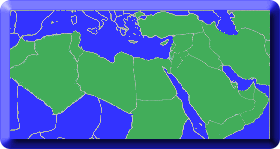
Topics in Middle Eastern and North African Economies
Document Type
Article
Publication Date
9-1-2018
Journal Title
Topics in Middle Eastern and North African Economies
Volume
20
Issue
2
Publisher
Middle East Economic Association and Loyola University Chicago
Abstract
Our aim is to study the interrelationship between CO2 emissions and gross domestic product (GDP) trends in selected MENA countries in order to detect whether environmental pressure has decoupled from economic growth in the region. Several MENA countries have become less carbon intensive along their growth paths due to different reasons. Some have been trying to switch their energy systems away from fossil fuels and some use less energy per unit of economic activity. Services sectors, which are less energy-intensive, are on the rise, whereas industrial sectors are shrinking. This study seeks to answer whether this is a general phenomenon observed in the MENA, and examines the impact of these factors on the possible existence or lack of such decoupling in a panel data setting. In regards to the ways that give rise to possible decoupling, technological changes enable countries to economize on energy use, especially when the prices of energy increase in oil/gas importing economies. The role of the private sector is also crucial to drive decoupling of CO2 emissions and economic growth. This paper intends to propose possible policy options for the region including public policies that encourage renewable energy and discourage subsidizing fossil fuels.
ISSN
2334-282X
Recommended Citation
HILMI, Nathalie; ACAR, Sevi; SAFA, Alain; and BONNEMAISON, Geoffroy, "Decoupling Economic Growth and CO2 Emissions in the MENA: Can It Really Happen?". Topics in Middle Eastern and North African Economies, electronic journal, 20, 2, Middle East Economic Association and Loyola University Chicago, 2018, http://www.luc.edu/orgs/meea/
Creative Commons License

This work is licensed under a Creative Commons Attribution-Noncommercial-No Derivative Works 3.0 License.
Copyright Statement
© 2018 The Authors



Comments
Presentation of the articles in the Topics in Middle Eastern and North African Economies was made possible by a limited license granted to Loyola University Chicago and Middle East Economics Association from the authors who have retained all copyrights in the articles.